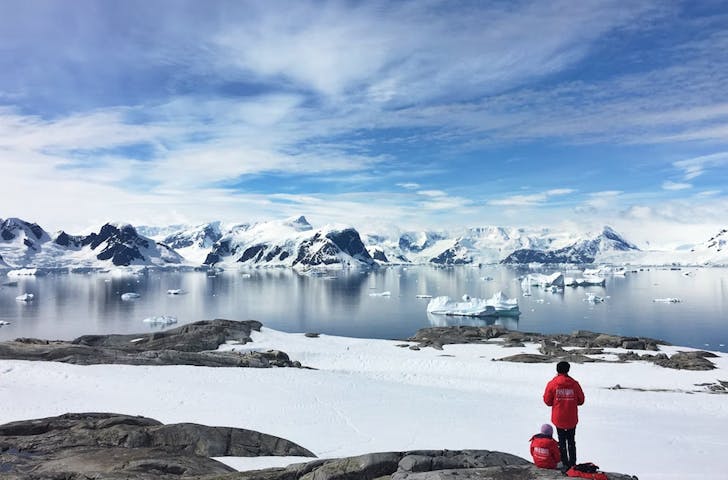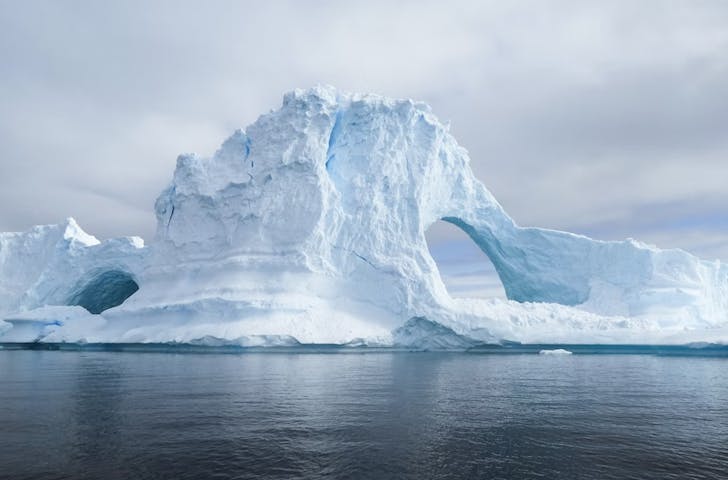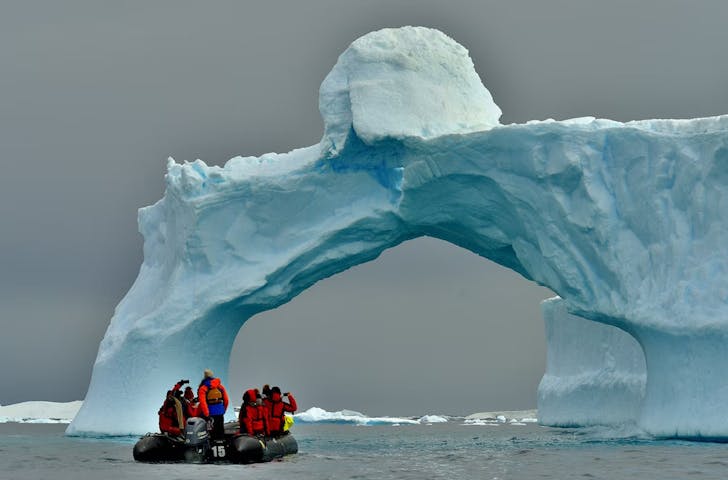Why Antarctica Matters For The Future Of Our Planet
Tishiko King is a guest editor at Urban List for 2023. A proud Kulkalaig woman from the Island of Masig, Kulkalgal Nation of Zenadth Kes, she’s a climate advocate and storyteller who has worked across various environmental organisations such as Groundswell Giving, Seed Indigenous Youth Climate Network, Our Islands Our Home, Coral Sea Foundation and more.
I have just returned from an incredible expedition that took me to Antarctica, with 100 people from around the world to come together and create resolutions focused on protecting the ocean. A climate expedition that aims to shift the trajectory we are currently on, offering everyday folks like you and tangible solutions to tackle the climate crisis.
Antarctica is, in several ways, the last continent. The last to be discovered, the last to be mapped and the last of the great wilderness. Covered in a thick carapace of ice, the continent represents the most extreme environment on earth. It is the only continent that has never had any Indigenous population and even today, despite the presence of numerous permanent research stations, there are few people.
Interestingly, Antarctica is uniquely geopolitical. It’s a region where international disagreements have been set aside thanks to the 1959 International Antarctic Treaty (all in the name of science). It basically presents that no person has power over the Antarctic’s land and sea in a bid to safeguard its environment and encourage the protection of its beautiful ecosystem.
So Why Is Antarctica So Important?

Well first and foremost, the continent is an ‘outdoor laboratory’ where environmental changes of global reach can be investigated. For example:
- Changes to climate: which is induced by the generation of greenhouse gases by humans are taking place at an unprecedented rate in parts of the continent, most affected in the Antarctic peninsula and west Antarctica. Let’s not also forget in the 1980s, the discovery of an ozone hole above the south pole caused by chlorofluorocarbons (CFCs), polluting gases used in refrigerants, was an unfortunate discovery.
- Oceanographic conditions: Water temperature, currents and acidification are also changing on the account of greenhouse gases.
Among the most serious impacts to humanity of these environmental changes is that of glaciers and ice-sheets thinning and retreating. Changes to sea-ice production also affect ocean circulation far beyond Antartica. The physical changes are impacting the polar system, where the health of iconic species such as whales, seals and penguins are being compromised.
This is exacerbated by the problematic fishing industry. Overfishing, plastic pollution, habitat degradation and bycatch are imposing drastic consequences that have cascading effects across the planet. While global action on climate change has been slow in coming to fruition (and despite the UN’s Paris Agreement aimed at strengthening the global response to the threat of climate change by keeping a global temperature well below 2 degrees pre-industrial levels), serious impacts cannot now be avoided.
Why Should You Care About Antarctica?

Right now, advancing seas are threatening the island homes of Torres Strait Island communities and urgent action is needed to ensure they can remain on their homelands. As the ocean is rising, fresh water supplies, crops, burial grounds and significant cultural sites are being damaged. Our food security, our health and our culture is at risk.
And who is accountable for this damage? The gravity of the situation is that Torres Strait Island people and communities are at risk of being climate refugees in our own Country.
We are in a climate crisis and those communities that are being impacted first and worst have not contributed to our national and global emissions. Our seas are rising because the dangerous fossil fuel emissions like coal, oil and gas are warming our atmosphere.
The warming is having impacts on the great white continent of Antarctica, where I witnessed with my own eyes, calving glaciers collapse into the ocean, melting at a rate that is having severe impacts on the ecosystem.
Antarctica's oceans are the heart of our systems globally and so many communities depend on the health of this polar ecosystem. For too long Aboriginal and Torres Strait Island people and communities were (and continue to be) presented as an antithesis of mainstream concepts of environmental conservation which exclude our people in the equation.
Our ecologically diverse land and sea Country will continue to be under threat until we see real systemic change and action that looks like Aboriginal and Torres Strait Island people have the autonomy and rights to say what and what doesn't happen to their land and seas.
Aboriginal and Torres Strait Island people have been caring and protecting our lands and sea country for millenia and we continue to do so today. It has been confronting, overwhelming and a kind of bittersweet feeling. With all this said, it is also an opportunity. There is no time to waste when the change of our climate directly impacts humans. We need to come together and galvanise collaborative action.
Here is our opportunity.

We have a decreasing window of time to prevent the worst of all possible futures, but we are hopeful that by taking action, we can create the future we want to see. We are in a critical stage and it is clear that current mitigation measures are not enough.
Our survival depends on drastically reducing carbon emissions with ambitious commitments from all leaders of parties, to bring us back on track for our goal of 1.5 degrees celsius this decade and to keep all new fossil fuels in the ground.
We need to keep our planet from warming, because if we don't, our communities, culture and Country is at risk. Our oceans will continue to rise and everything that we love under and on top of the ocean is at stake
I feel proud to come from a small island nation because it is the love from small island nations that are making big waves.
For now, there are two key things I call on you to do:
- Head to Our Islands Our Home and follow their work on instagram and sign their petitions.
- Become a member at Groundswell Giving, who strategically fund climate action.
Now, read on for why true climate action requires First Nations justice.
Image credit: Henrique Setim, Tishiko King, Cassie Matias, Derren Oyen, Long Ma
